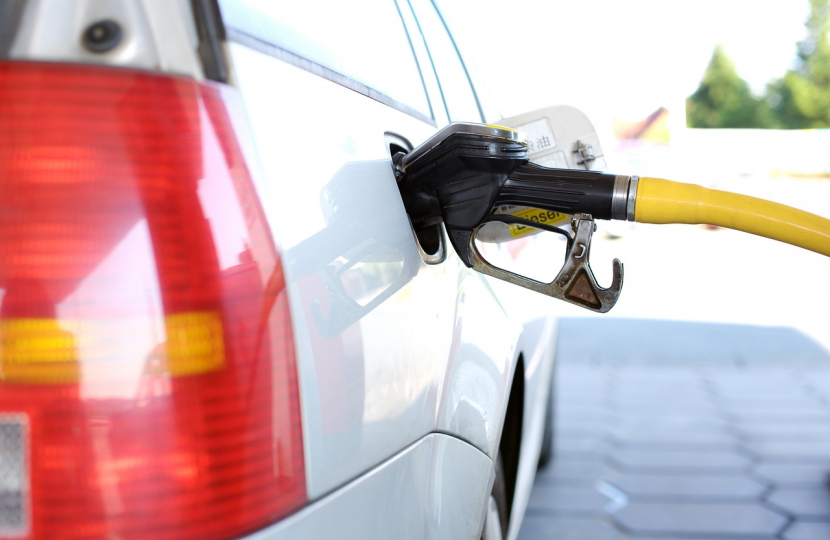
Vale of Clwyd MP Dr James has sent a letter to the Competition and Markets Authority (CMA) expressing concern at the significant discrepancies in price for fuel within the region and highlighting the financial pressure this is placing on people in the area.
James recently wrote to supermarkets throughout the Vale of Clwyd to question their pricing variations. Responding, they cited “transportation costs” and ensuring fuel is “competitively-priced locally”.
However, James has questioned this and raised his concern with the CMA.
His letter states:
“I am writing further to the Road Fuel Review and ahead of the publication of the associated market study report.
“I want to make you aware of the significant discrepancies in fuel prices within my constituency, the Vale of Clwyd, and across the North Wales and West Cheshire region.
“Having been much troubled by this matter, I recently wrote to supermarkets to question their pricing variations.
“The responses I received have sought unsuccessfully to reassure me that supermarkets are committed to supplying fuel at reasonable prices. The supermarkets have cited that the variation in pricing is owing to transportation costs and ensuring fuel is “competitively-priced locally”.
“However, this does not seem to be fair and representative of the situation on the ground at fuel stations in north Denbighshire. For example, only a few months ago, two filling stations in Denbigh were charging £1.72 a litre for diesel. This was in stark contrast to nearby a nearby service station on Denbigh Road, which was charging £1.58 for diesel. Further, only five miles away, a St Asaph service station was charging 5p a litre less than its Denbigh counterparts.
“As of today, the price of 1 litre of unleaded fuel at Morrisons is 133.7p in Wrexham; 137.9p in Chester; 145.7p in Rhyl and 147.9p in Denbigh. Likewise at Sainsburys the cost is 134.9p in Wrexham; 138.9p in Chester and 146.9p in Rhyl. Tesco is charging 133.9p in Wrexham; 138.9p in Chester (Broughton) and 145.9p in Prestatyn.
“Further along the North Wales coast, for example in Anglesey, fuel is often cheaper than in north Denbighshire. It is surely more costly to transport fuel to more distant locations such as Anglesey. Therefore I would very much question the supermarkets’ argument that transportation costs are a key underlying factor resulting in the pump price variation we currently see. It would appear to me that, where circumstances allow, there is more of an artificial pricing structure being adopted by fuel stations, whereby there is deliberately no lead being taken by any of the competitors to bring down prices to levels similar to those found elsewhere.”
In the letter James said there has always been a small variation in fuel prices between different areas within the region, and whilst appreciating that this gap will have widened marginally owing to inflation, he stressed that it does not account for persistent differences in price of 12 to 14 pence per litre of fuel.
He added:
“Understandably, I am being contacted by ever-increasing numbers of constituents who are angry at the discrepancies in the pricing structure, and feel that they are being taken advantage of. While I have directed many of my constituents to the review you have been carrying out, I note that the consultation period has now closed.
“The Vale of Clwyd is a semi-rural constituency and so a car is essential for my constituents. Given the current economic situation, the current variation in pricing is causing a significant financial strain on many households. Indeed, there are even reports of people travelling up to 20 miles out of their way to fill up at cheaper service stations.”
James concludes his letter by asking the CMA to consider the situation in the Vale of Clwyd as an example of how the market is currently functioning, before publishing their report.
He also called on them to look into remedying the unfair pricing discrepancies, which he emphasised are “causing significant financial pressures to people in Denbighshire”
